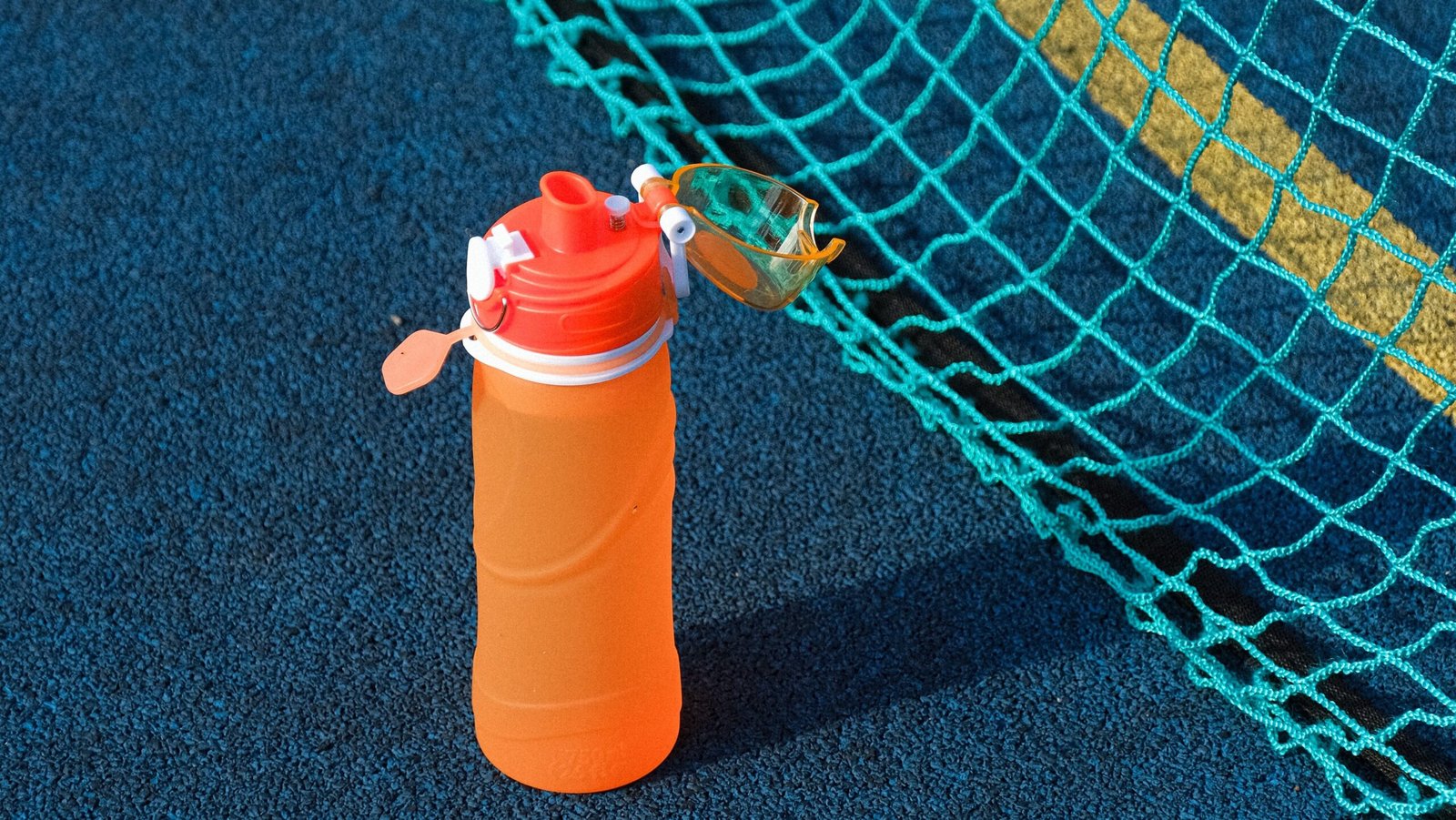Introduction
In the quest for staying well-hydrated, especially during strenuous activities or when recovering from illnesses, the debate between coconut water and Pedialyte often arises. Both beverages offer hydration benefits, but which one should you choose?
In this comprehensive guide, we’ll delve into the nuances of coconut water vs. Pedialyte, shedding light on their unique qualities, health benefits, and ideal use cases. By the end, you’ll have a clearer understanding of which option aligns better with your specific needs.
Coconut Water vs Pedialyte
Understanding Coconut Water

Coconut water, the clear liquid found inside young green coconuts, has gained popularity as a natural and refreshing way to rehydrate. Here’s what makes it stand out:
Coconut Water Benefits
- Electrolyte-Rich: Coconut water is a natural source of electrolytes like potassium, sodium, and magnesium, which are essential for maintaining hydration and preventing muscle cramps.
- Low in Calories: It is relatively low in calories, making it a suitable choice for those looking to hydrate without consuming excess sugar.
- Natural Flavor: Coconut water boasts a subtle, pleasant taste without added sugars or artificial flavors.
- Rich in Nutrients: Apart from electrolytes, coconut water contains essential vitamins and minerals that support overall health.
The Pedialyte Solution

Pedialyte, on the other hand, is a commercial oral rehydration solution designed to address dehydration due to various causes. Here’s what sets it apart:
Pedialyte Advantages
- Scientifically Formulated: Pedialyte is specifically crafted to help rehydrate effectively. It contains precise ratios of electrolytes and glucose to facilitate rapid absorption.
- Tailored for Children and Adults: While initially developed for pediatric use, Pedialyte now offers formulations suitable for all age groups.
- Variety of Flavors: Pedialyte comes in various flavors to cater to individual preferences, making it easier to consume, especially for children.
Coconut Water vs Pedialyte: When to Choose What?

Coconut Water for Active Lifestyles
For those engaged in regular physical activities like workouts, yoga, or sports, coconut water can be an excellent choice. Its natural electrolytes can help replenish lost minerals through sweat, keeping you energized and preventing muscle cramps. Plus, its low-calorie content makes it a guilt-free post-workout refreshment.
Pedialyte for Intensive Exercise
During intense exercise sessions or competitions, Pedialyte’s precise electrolyte composition and fast absorption rate can be a game-changer. It helps restore electrolyte balance quickly, ensuring peak performance and preventing dehydration-related issues.
The Recovery Scenario

Coconut Water: Gentle Hydration
When recovering from mild illnesses like the common cold or flu, coconut water provides gentle hydration with essential nutrients. Its natural composition aids in recovery without overwhelming your system.
Pedialyte: Effective Rehydration
In cases of severe dehydration due to illnesses such as gastroenteritis or food poisoning, Pedialyte’s scientifically formulated solution is highly effective. It helps replace lost fluids and electrolytes swiftly, aiding in a speedy recovery.
Coconut Water vs Pedialyte: Pros and Cons

Coconut Water Pros
- Natural electrolytes for gentle hydration.
- Low in calories and added sugars.
- Pleasant, natural taste.
- Suitable for light physical activities.
Coconut Water Cons
- May not be potent enough for severe dehydration.
- Limited flavor options.
Pedialyte Pros
- Scientifically formulated for rapid rehydration.
- Suitable for all age groups.
- Multiple flavor choices.
- Effective in cases of severe dehydration.
Pedialyte Cons
- Contains artificial flavors.
- Higher in calories compared to coconut water.
Coconut Water vs Pedialyte. The Main Differences
When it comes to hydration options, coconut water and Pedialyte are two popular choices, each with its own set of advantages and disadvantages. In this comparison, we’ll explore the key differences between Pedialyte and coconut water to help you make an informed choice for your hydration needs.
| Aspect | Pedialyte | Coconut Water |
| Formulation | Scientifically formulated | Natural |
| Intended Use | Dehydration, illness | Everyday hydration |
| Electrolytes | Contains precise balance of | Contains natural electrolytes |
| sodium, potassium, chloride | (potassium, sodium, magnesium) | |
| Flavors Available | Multiple flavors available | Natural, subtle taste |
| Rapid Absorption | Yes, absorbed quickly | Effective but not as rapid |
| Caloric Content | Contains calories (glucose) | Lower in calories |
| Suitable for energy needs | Suitable for low-calorie needs |
Types of Coconut Water and Pedialyte

Types of Coconut Water
Pure Coconut Water: This is the most basic and common type of coconut water, sourced directly from young green coconuts. It is 100% natural and does not contain any additives or preservatives.
Flavored Coconut Water: Some brands offer flavored coconut water by infusing natural fruit flavors such as pineapple, mango, or passion fruit. These options provide a hint of extra flavor.
Organic Coconut Water: Organic coconut water is produced from coconuts that are grown without the use of synthetic pesticides or fertilizers. It is an option for those who prefer organic products.
Coconut Water with Pulp: Some coconut water products include small pieces of coconut pulp, adding a unique texture and flavor to the beverage.
Concentrated Coconut Water: Concentrated coconut water is dehydrated to remove most of its water content, resulting in a powder or syrup. It is used in various food and beverage products and can be reconstituted with water.
Coconut Water Blends: Some brands offer blends of coconut water with other ingredients such as aloe vera or watermelon to create unique flavor profiles and additional health benefits.
Types of Pedialyte
Pedialyte AdvancedCare: This is a standard Pedialyte formulation designed for both children and adults. It comes in various flavors, including fruit punch, grape, and cherry.
Pedialyte Powder Packs: These are convenient powder packets that can be mixed with water to create a flavored Pedialyte drink. They are available in single-serving sachets for on-the-go hydration.
Pedialyte Freezer Pops: These frozen popsicles provide a tasty way to consume Pedialyte and are particularly suitable for children who may find the popsicle format appealing.
Pedialyte for Diarrhea: Some Pedialyte formulations are specifically marketed to address diarrhea-related dehydration. They contain ingredients to help alleviate symptoms of diarrhea.
Pedialyte Singles: These are pre-mixed, ready-to-drink Pedialyte bottles available in various flavors. They are convenient for immediate consumption without any mixing.
Coconut Water and Pedialyte Nutritional Info
| Nutritional Component | Pedialyte (per 8 oz serving) | Coconut Water (per 8 oz serving) |
| Calories | Approximately 50 calories | Approximately 45 calories |
| Total Fat | 0 grams | 0 grams |
| Sodium | Varies by flavor (typically around 240-260 mg) | 11 mg |
| Potassium | Varies by flavor (typically around 180-200 mg) | Approximately 470 mg |
| Total Carbohydrates | Approximately 12 grams | Approximately 11 grams |
| Sugars | Typically contains 9 grams | Typically contains 9 grams |
| Protein | 0 grams | 0.5 grams |
Please keep in mind that the nutritional content may vary slightly depending on the specific brand and any added flavors or ingredients. These values provide a general overview of the nutritional differences between Pedialyte and Coconut Water.
Is Coconut water better than an Pedialyte drink?
Whether coconut water is better than an Pedialyte drink depends on your specific needs and circumstances. Let’s explore the advantages and disadvantages of both options to help you make an informed choice:

| Aspect | Coconut Water | Pedialyte Drink (e.g., Electrolyte) |
|---|---|---|
| Electrolyte Content | Contains natural electrolytes (potassium, sodium, magnesium) | Scientifically formulated for precise electrolyte balance |
| Caloric Content | Approximately 45 calories per 8 oz serving | Varies, but typically contains calories due to added glucose |
| Natural Ingredients | Typically free from artificial additives and preservatives | May contain artificial flavors, colors, and sweeteners |
| Flavor Variety | Limited to natural coconut water flavor | Often available in various flavors for better taste |
| Speed of Rehydration | Effective for gentle hydration, not as rapid as electrolyte drinks | Rapid absorption for quick rehydration, ideal for severe dehydration |
| Suitable Use Cases | Everyday hydration, light physical activities | Cases of severe dehydration, illness, or intense physical activity |
| Potency | May not be potent enough for severe dehydration | Specifically designed for effective rehydration |
In summary, coconut water is a natural and low-calorie option that provides gentle hydration and is suitable for everyday use and light physical activities. On the other hand, electrolyte drinks are scientifically formulated for rapid rehydration and are more effective in cases of severe dehydration or illness.
The choice between coconut water and an electrolyte drink depends on your hydration needs. If you’re dealing with severe dehydration or medical conditions, an electrolyte drink like Pedialyte may be more appropriate. For everyday hydration and milder activities, coconut water can be a healthy and refreshing choice. Always consult with a healthcare professional if you have specific concerns about dehydration or electrolyte imbalances.
Conclusion
In the showdown of coconut water vs. Pedialyte, the winner ultimately depends on your circumstances and needs. Coconut water provides a natural and refreshing option for gentle hydration and light physical activities. On the other hand, Pedialyte’s scientific formulation is the go-to choice for rapid rehydration, especially during severe dehydration or illness.
Remember, staying adequately hydrated is crucial for overall health. Whether you opt for the tropical allure of coconut water or the precision of Pedialyte, both beverages can play a valuable role in keeping you hydrated and healthy.
Frequently Asked Questions
Can coconut water replace Pedialyte for children?
While coconut water is a healthy beverage, Pedialyte’s precise electrolyte balance makes it a better choice for children during dehydration.
Is coconut water effective for hangover recovery?
Yes, coconut water can help alleviate hangover symptoms by rehydrating your body and replenishing lost nutrients.
Is Pedialyte suitable for adults?
Absolutely! Pedialyte offers formulations suitable for both children and adults.
Does coconut water have any side effects?
Generally, coconut water is safe. However, consuming excessive amounts may lead to gastrointestinal discomfort due to its natural laxative effect.
Can I mix coconut water and Pedialyte?
Mixing the two is not recommended, as it may alter the balance of electrolytes.
Which is more cost-effective, coconut water, or Pedialyte?
Coconut water is usually more cost-effective, but Pedialyte offers precise hydration for specific needs.





